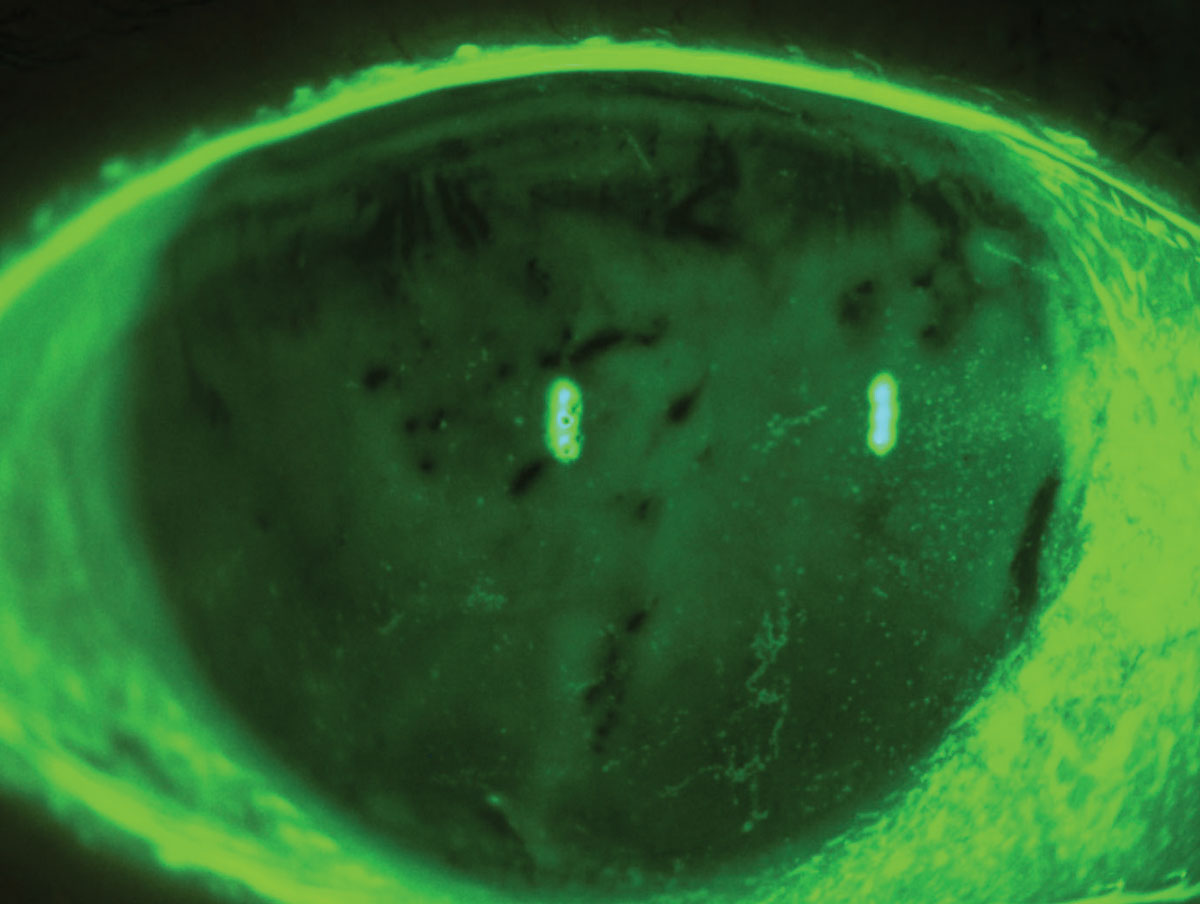 |
While omega-3 pills significantly improved DED signs and symptoms from baseline to three months of treatment, beyond this, the intervention showed no clear benefit. Photo: Luis Rojas, OD. Click image to enlarge. |
Over the last few years, several studies have investigated the potential benefit of omega-3 fatty acid supplementation in the treatment of dry eye disease (DED). However, to date, such literature—including the widely reported DREAM study—has not provided convincing evidence that omega-3 fatty acids are effective in controlling DED symptoms or progression; rather, the pills showed results similar to the placebo.
While the original DREAM study only followed patients for 12 months, researchers—again led by study chair Penny Asbell, MD—recently obtained an additional year of data from moderate-to-severe DED patients who had been initially randomized to receive omega-3 pills the first year. During the second year, these participants (n=43) were re-randomized to either continue with omega-3 (n=22) or switch to placebo (n=21). The team evaluated the progression of DED symptoms and signs over the two years with follow-ups at baseline, three, six, 12, 18 and 24 months. They presented their findings yesterday afternoon at ARVO 2023 in New Orleans.
The data showed that at three months, DED patients taking omega-3 showed significant improvements in Ocular Surface Disease Index and Brief Ocular Discomfort Index scores and less use of artificial tears or gel; however, after this period (an additional six to 24 months), DED symptoms and treatments remained stable. There were also no significant changes over two years in corneal staining, tear film breakup time, Schirmer test, meibomian gland dysfunction, tear osmolarity or noninvasive keratography measures in patients treated with omega-3. The only DED metric that did show a significant change in the treatment group over two years was conjunctival staining score.
The researchers explained in their abstract that the significant improvement in subjective DED symptoms in the first three months of omega-3 treatment could be chalked up to a placebo effect or regression to the mean. Due to this observation, they noted that “future clinical trials of DED should consider the short-term placebo effect of treatments on DED symptoms.”
The results of this randomized follow-up study on the DREAM cohort suggest that omega-3 supplementation and observation promote comparable treatment outcomes over two years in DED patients. Additionally, the researchers concluded in their abstract that “these results do not support progression of DED over the two years of observation.”
Original abstract content © Association for Research in Vision and Ophthalmology 2023.
Daniel Lee D, Yu Y, Bunya VY, et al. Two-year progression of dry eye disease in the dry eye assessment and management (DREAM) study. ARVO 2023 annual meeting. |

